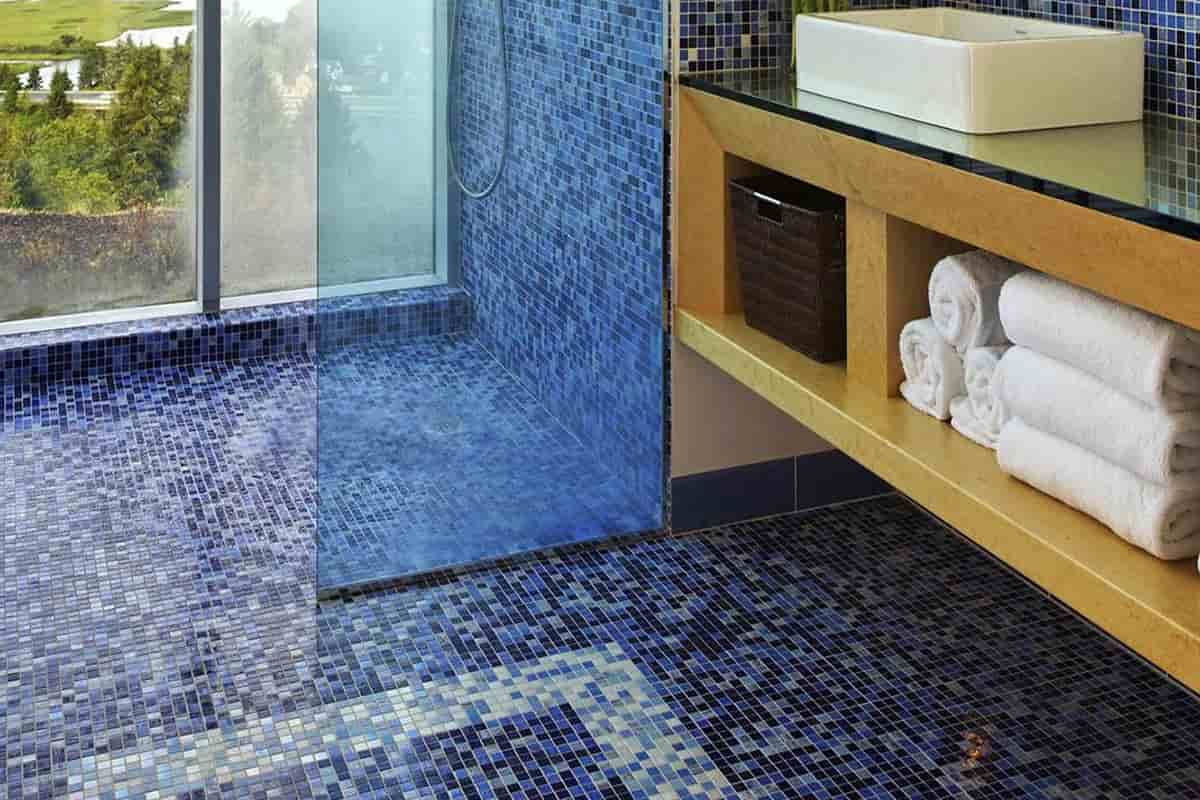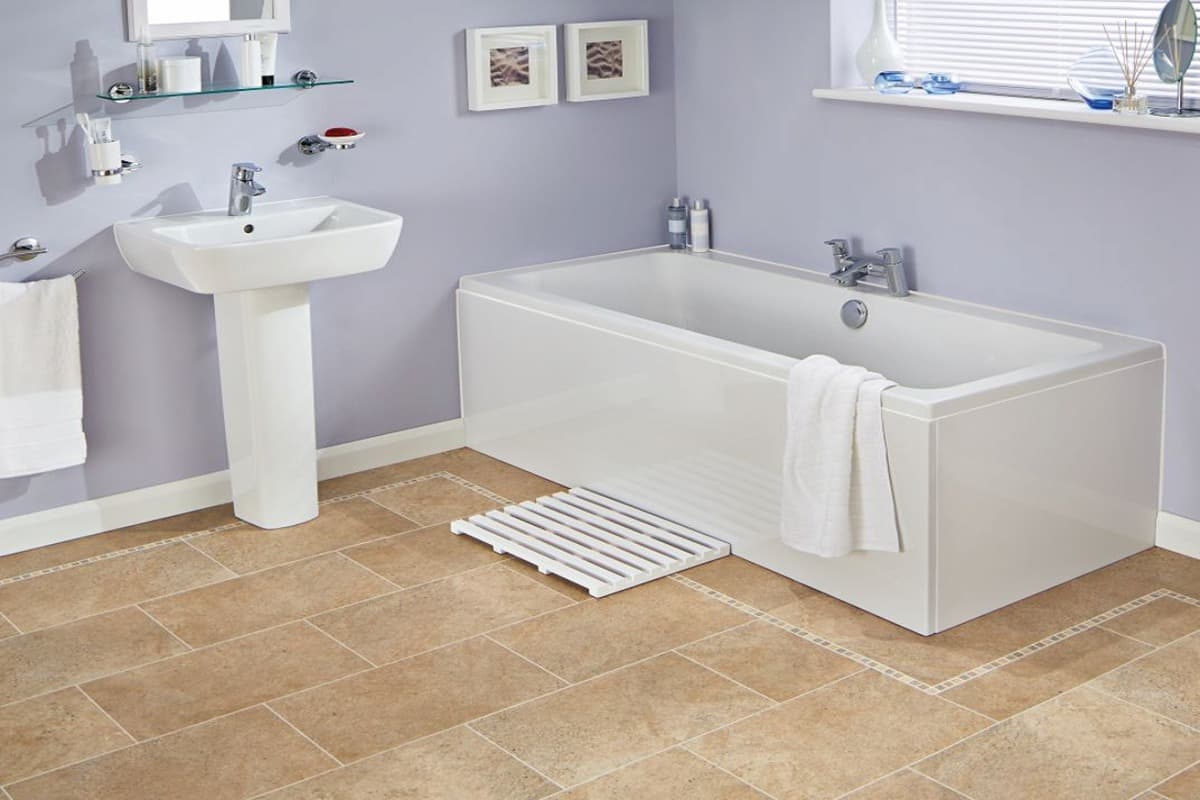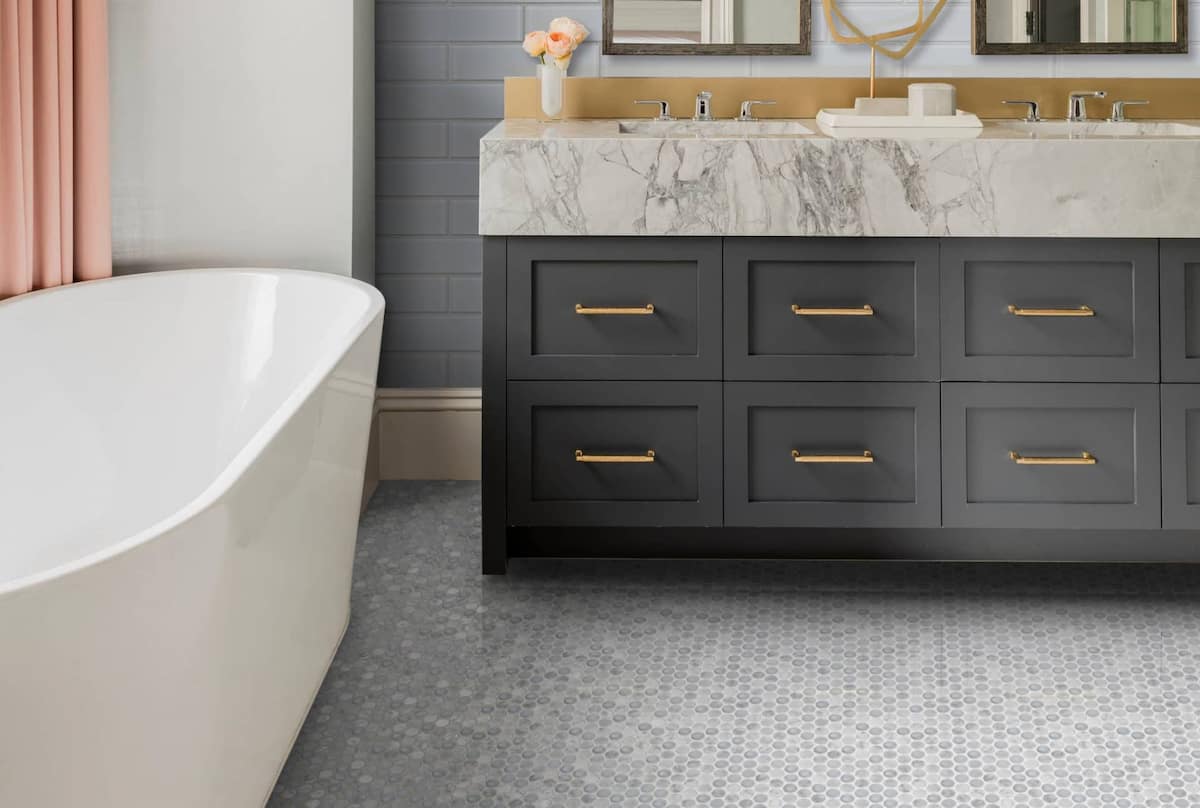In a space like a bathroom, penny tile flooring may create a warm and welcoming atmosphere. These tiles are constructed up of tiny tiles in the form of a penny, making them comfortable to walk on barefoot. Penny tiles are most often associated with older architecture, although they are equally suitable for more modern styles. Penny tiles may be found in many different designs. One may choose from a variety of forms, materials, and hues. The final price of your new floor will depend on all of the above factors. Additionally, the recommended options change depending on the room, such as the kitchen or bathroom. Materials: Common materials for penny tile flooring include ceramic, porcelain, and glass. These materials can be glazed, left unglazed, or sealed at a later time. Solid surface, stone, cork, metal, or real pennies may be used instead; however, this requires additional processes, such as the application of resin in order to make a permanent surface, and is thus not suggested.

Tiles made of porcelain, glass, or ceramic are set in fiberglass mesh, grouted, and then completed. Think about the room's aesthetics and the intended use of the flooring before deciding on a finish. Materials used in showers should be non-porous and slide-resistant for safety reasons. Because of the high volume of potential spills and slips that occur in a kitchen, it may be especially necessary for kitchen flooring to be easy to clean and non-slip. No-grout blue penny tile Colors: Flooring may be whatever color you choose, provided you can get the appropriate material in that shade. White glazed porcelain penny tiles are the most common and most sought after. There is no definitive hue that denotes a penny floor. If the floor is made entirely of pennies, it will have the same color scheme, but, unless the coins are brand new or pristine, they will need to be arranged in a certain pattern to best hide the various signs of wear and tear. The initial heyday of this style had a preponderance of black and white applications. Shapes: It's possible to get penny-style flooring in a wide variety of forms. The most common design for penny flooring is a circle, like a penny, although other shapes, such as hexagons and octagons, are also popular. Dimensions: As was previously said, penny flooring is available in a miniature format that is eerily similar to the coin it was named after. Depending on the form, each of these tiles measures less than one square inch or one inch in diameter. The flooring will have a mosaic appearance because of this. Flooring Designs Using Penny Tiles Penny flooring comes in both tile and sheet forms. Installing the former is less time-consuming and costly than the latter. Different people have different tastes when it comes to what works best in different types of rooms; therefore, there is no hard and fast rule about what constitutes a "good" design.

With bigger rooms, more patterned patterns are usually required, whereas smaller areas such as bathrooms may skate by in one solid section. To tile a floor, one must first purchase a huge quantity of little tiles and then arrange them singly on a fiberglass mesh in order to create a variety of designs. Grouting the tiles is an integral part of this procedure. The time and money required to tile a room may add up quickly throughout the installation process. Sheets: Using sheets of penny tiles really is the same technique, only instead of putting hundreds of individual pieces, there are a lot already applied to a mesh and put in sets. You'll be glad you did this since it will save you time and money throughout the installation process. copper-penny-floor-tileBudget-Friendly Penny Tiles for the Floor Penny floor tile is a less common kind of flooring that is formed from actual pennies put out in a mosaic. Although this flooring style was popular in the early 1900s, as a classic, it is sure to make a comeback in the future. This flooring was used in restaurants and private residences, and it was sometimes complemented with contemporary variations on the pennies floor design, such as accents made of penny tiles.

The concept behind penny flooring tile is to create a mosaic floor out of a large number of little tiles (penny sized), often less than an inch in diameter apiece. These are often seen in damp environments like bathrooms, pools, kitchens, laundry rooms, etc. Floor tiles that cost a penny each The cost of a single floor tile, or "penny," may range from one penny to many dollars, depending on the size of the area being tiled and the material being used. Popular choices like ceramic and porcelain may be had for as little as $5.00 per square foot. The price of these vibrant mosaics is about $10 per foot. The going rate for more luxurious materials like marble is around $12 per square foot. DIY projects that use actual pennies cost little more than $2.50 per square foot. Since you are using actual coins in your production, you will be hard-pressed to negotiate a lower cost. The price of this penny flooring does not include the additional materials required for installation, such as grout and sealant. Compared to the cost of utilizing coins, other types of tiling typically range from $1 to $2 per square foot. Grout, sealants, and/or polishing may be required for this material. Floor Penny Tiles in a Bathroom Penny tile, with its inherent resistance to slipping, is a smart choice for use in this application since it is so often seen in bathrooms.

When there is more grout or texture, there is more of a chance that someone won't slide. These penny tiles are versatile enough to use everywhere in the bathroom, including the floor, walls, and even showers. These tiles are often used to cover the whole wall in commercial spaces since they provide protection and are simple to clean. Home bathrooms may also benefit from this, both aesthetically and practically. These tiles are often used as a decorative element in conjunction with bigger tiles on floors and walls. Floor Tiles Costing a Penny Each It's also possible to use penny tiles successfully as kitchen floors and backsplashes. Because of their textured surface and inherent slip resistance, these tiles are ideal for use in a kitchen. Kitchens tiled in this fashion may seem either retro, reminiscent of a classic diner, or ultra-modern and chic. In the same way that bigger tiles and simply the accent penny tiles may be used in a bathroom, so too can they be used here. There is no limit to the variety of designs. The water-resistant and low-maintenance properties of these materials make them ideal for bathrooms and kitchens. Find out more about kitchen flooring options here. Tile Adhesive for a Penny Choosing the proper grout color is just as crucial as choosing the designs, colors, forms, etc. for the penny tiles. Grout is often overlooked, but it may make up a significant portion of a floor or wall, so it's important to choose a color that works with the rest of the decor.

Not only is the color significant, but so is the texture. Bare feet mean you can feel the tiles and grout on the kitchen or bathroom floor. It's crucial to do this before the grout is installed since it will be impossible to remove after it has cured. Choose sanded grout if the spaces between your penny tile sheets are more than 1/16 of an inch. Choose non-sanded grout if your tile joints are less than 1/16 inch. Penny tile flooring has the advantage of being very long-lasting. This is due to putting down tiles or pennies onto whatever flooring presently exists and then sealing the floor with epoxy or tile sealant. This creates a sturdy floor that can withstand heavy foot activity. Stylish — As for the originality component, when utilizing actual pennies for the flooring, the inventiveness and uniqueness are through the sky. Matching – As for adaptability, that is quite endless as well, as the penny tile style of flooring may be utilized with nearly any design, from modern to classic. Cons of the High Cost of Penny Tile Flooring - Cons are inescapable with benefits. The use of something so inexpensive as pennies would lead one to believe that the price would be much lower; nonetheless, they are more costly than conventional tiles. Compare that to the already laid tiles that you can acquire in the shop today, and you will likely opt for tiles vs real pennies for the basis of the flooring. More so, installing all those tiles or pennies on the floor takes an unimaginably long period. Doing it yourself might save money, but the work can be exhausting, so I suggest practicing on a smaller space first.

You should opt to have a professional install penny tile to prevent having a grid appearance. When a sheet with a grid pattern is spread down, its edges will show. Tile and penny laying services might be expensive if you hire a professional to do the job for you. Why should anybody else do it if you don't even want to? If you decide to sell your house or go through a major interior design overhaul and want to get rid of them, you will find that the task is not a simple one. This flooring was manufactured to last, so it will not come up without assistance and will not come up easily. Penny tiles may be a lot of work to keep clean since there is so much grout between them. This is particularly true if you want to put them in a busy public space. Penny tiles may be cleaned using a solution of scouring powder to warm water (1 part powder to 1 part water). Apply the mixture to the discolored area and let it settle for a few minutes. Then, using a soft bristle brush, clean the area before rinsing it with warm water. As a result, if you're going for the penny design, you can expect your house to have a timeless, robust beauty that will set it apart from the rest. Pebble tile flooring is another option we cover in this post.
